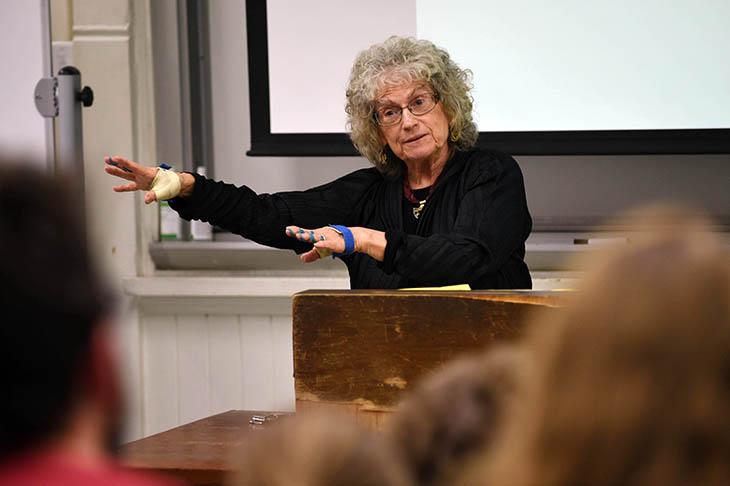Is naturalized citizenship a right that needs amending?
From the start, visiting speaker Linda K. Kerber was animated and enticing. She looked you straight in the eyes as she talked, and her words conveyed her passion for women’s rights and social justice.
“The reasons historians travel so much is because they love to hear themselves introduced,” laughed Kerber at the start of her speech on the Tulane University uptown campus Wednesday (Jan. 27), before diving into the historical and contemporary significance of the 14th amendmentof the U.S. Constitution.
Kerber, the Mary Brodbeck Professor in the Liberal Arts at the University of Iowa, is an acclaimed author who won the Joan Kelly prize for the best book in women’s history and the Littleton-Griswold Prize for the best book in U.S. legal history. Kerber combined her knowledge of both fields in her discussion, “Can the 14th Amendment Save Itself?”
“I used to test my law students to see if they knew section one of the 14th Amendment,” she said. “They’d stare at me open-mouthed. But it really is important to know.” She went on to discuss the implications of the 14th amendment for immigrants, especially immigrant women and their children.
Recently the 14th amendment has been in the news as politicians discuss whether naturalized citizenship is a right that needs to be amended. Kerber talked about how as a historian, it is her duty to discuss what is true and false in the media today, especially concerning laws, justice and human rights.
“If people could get one thing from my talk today,” she exclaimed, “I would want them to look at the idea of birthright citizenship with a new perspective and understand how having this law strengthens the United States.”
Kerber, an example of someone who is dedicated and passionate about her field of study, was an inspiration for students.
“One of my goals as a historian is to help people resist misinformation,” she said.
Claire Davenport is a sophomore at Tulane University, majoring in English and political science.

